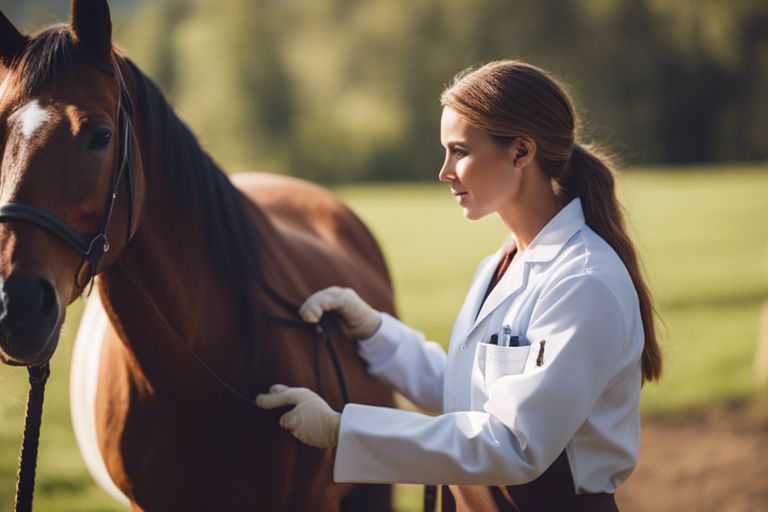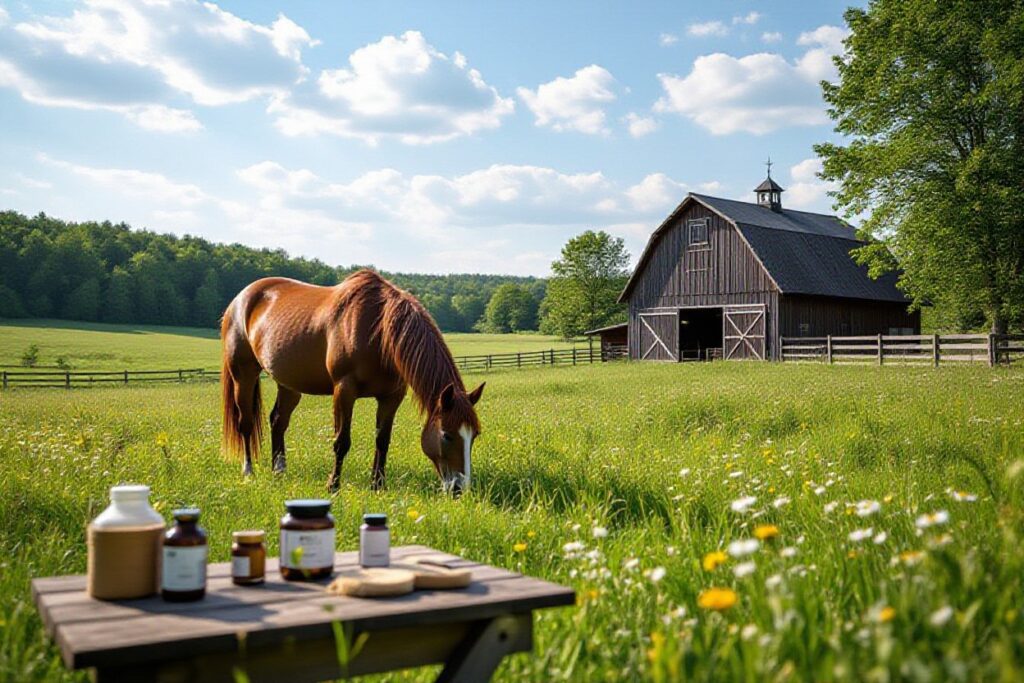Just like any other animal, horses can face a variety of health issues that can impact their well-being. It is crucial for horse owners and caretakers to be aware of these common health issues and take proactive steps to prevent them. By understanding the potential problems that can arise and implementing preventative measures, you can help ensure the health and longevity of your equine companion. In this guide, we will explore some of the most prevalent health issues in horses and provide valuable tips on how to keep your horse happy and healthy.
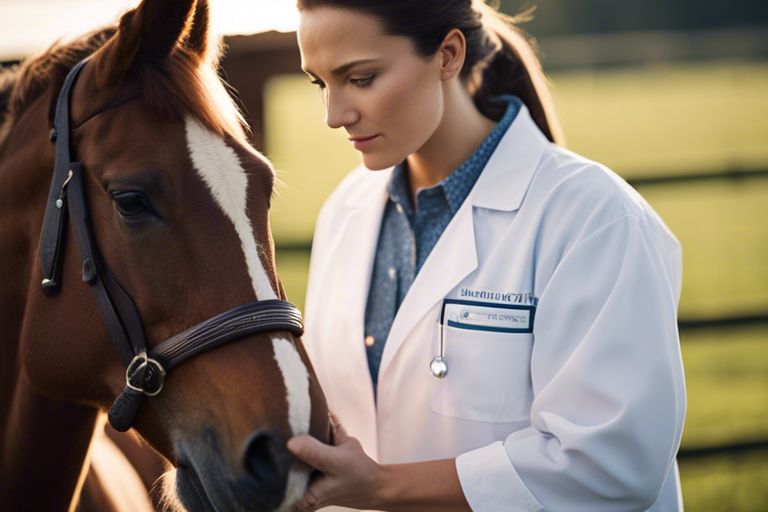
Common Health Issues in Horses
Colic: Causes and Prevention
One of the most prevalent and potentially life-threatening health issues in horses is colic. Colic refers to abdominal pain and can have various causes, including dietary changes, dehydration, parasites, or stress. To prevent colic, ensure your horse has a consistent feeding schedule, a diet high in forage, access to clean water at all times, and regular exercise. Monitor your horse closely for any signs of discomfort or changes in behavior that could indicate colic.
Respiratory Conditions: Recognizing Symptoms and Reducing Risks
Horses are susceptible to respiratory conditions such as allergies, infections, and inflammatory airway diseases. Recognizing symptoms early is crucial for timely treatment and prevention of complications. Watch for signs like coughing, nasal discharge, or labored breathing. Reduce risks by providing good ventilation in stables, minimizing dust exposure, and ensuring regular dental care to prevent issues that could affect the respiratory tract.
Prevention: Regular veterinary check-ups, proper stable management, and maintaining good hygiene practices can all contribute to reducing the risks of respiratory conditions in horses. Implementing a vaccination schedule tailored to your horse’s specific needs can also help prevent respiratory infections.
Nutritional Management for Optimal Horse Health
Essential Nutrients and Their Roles
It is crucial to understand the imperative nutrients that contribute to the overall health and well-being of your horse. These include carbohydrates, proteins, fats, vitamins, minerals, and water. Carbohydrates provide energy, proteins are imperative for muscle development and repair, fats support coat condition and provide a concentrated energy source, vitamins and minerals play vital roles in various metabolic functions, and water is necessary for digestion, temperature regulation, and overall hydration.
Designing a Balanced Diet: Tips and Tricks
Little adjustments in your horse’s diet can make a significant impact on their overall health. When designing a balanced diet, consider the horse’s age, weight, activity level, and any specific health conditions they may have. Always consult with a veterinarian or equine nutritionist to ensure your horse’s diet meets their individual needs.
- Choose high-quality forage such as hay or pasture as the foundation of the diet.
- Introduce concentrates like grains or commercial feeds in appropriate amounts based on the horse’s requirements.
- Consider adding supplements only if recommended by a professional to address specific deficiencies.
Any sudden changes to the horse’s diet should be made gradually to prevent digestive upset.
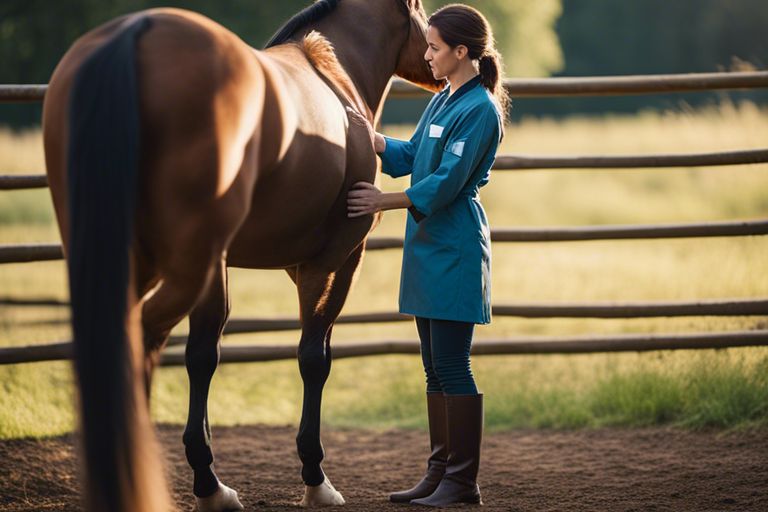
How-To Guide on Equine Parasite Control
Identifying Common Equine Parasites
For effective equine parasite control, it is important to be able to identify common parasites that can affect your horse. These include internal parasites such as small and large strongyles, roundworms, tapeworms, and bots, as well as external parasites like ticks, lice, and mites. Regular fecal testing and consultation with your veterinarian can help in identifying the specific parasites your horse may be dealing with.
Strategies and Tips for Effective Parasite Management
Control measures for equine parasites involve a multi-faceted approach. Implementing strategic deworming protocols based on fecal egg counts, rotational grazing, and good manure management practices are key elements in controlling parasite populations. Regular monitoring of your horse’s condition and behavior can also help in detecting early signs of parasitic infestation.
- Implement strategic deworming protocols based on fecal egg counts.
- Practice rotational grazing to reduce parasite exposure.
Management practices such as proper manure removal, pasture rotation, and quarantine procedures for new horses are crucial in preventing parasite transmission among your equine herd. Understanding the lifecycle of common equine parasites and their mode of transmission is also important in developing effective parasite control strategies.
-
- Implementing proper manure removal and pasture rotation practices.
- Perceiving early signs of parasitic infestation can help in timely intervention and treatment.
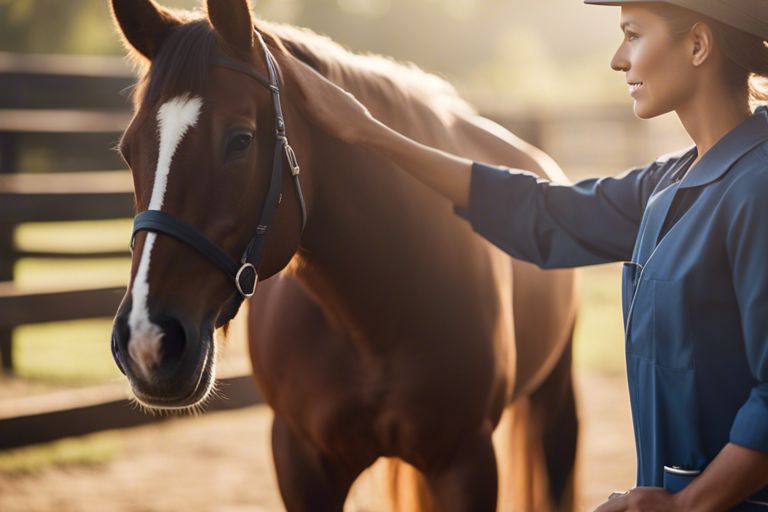
Preventative Measures for Musculoskeletal Disorders
Understanding the Factors Leading to Joint and Muscle Issues
Disorders in horses can arise from a variety of factors, including poor conformation, inappropriate training methods, inadequate warm-up and cool-down routines, improper hoof care, and overuse injuries. These issues can lead to joint inflammation, muscle strains, and overall discomfort for the horse.
-
-
- Ensure proper conformation and hoof care
- Implement appropriate training methods
- Establish a structured warm-up and cool-down routine
-
Any signs of lameness or stiffness should be addressed promptly by a veterinarian to prevent further damage and improve the horse’s quality of life.
Proactive Tips for Maintaining Soundness in Horses
Proactive measures play a crucial role in maintaining the soundness of horses. Regular exercise, proper nutrition, routine veterinary check-ups, and adequate rest are key components in preventing musculoskeletal issues. It is necessary to provide horses with a balanced diet, suitable living conditions, and opportunities for natural movement.
-
-
- Incorporate regular exercise routines
- Ensure a well-balanced diet
- Provide opportunities for ample rest and recovery
-
Assume that preventing musculoskeletal issues requires a proactive approach and a holistic view of the horse’s well-being.
To wrap up
From above, it is evident that horses are susceptible to a variety of health issues that can impact their overall well-being. By understanding these common issues such as colic, laminitis, and respiratory problems, horse owners can take proactive steps to prevent them. This includes providing a balanced diet, regular exercise, proper hoof care, and a clean living environment. Additionally, regular veterinary check-ups and vaccinations are crucial for maintaining the health of horses. By implementing these preventative measures, horse owners can help ensure their equine companions lead long and healthy lives.
FAQ
Q: What are some common health issues in horses?
A: Some common health issues in horses include colic, laminitis, respiratory diseases, and skin conditions.
Q: How can colic be prevented in horses?
A: Colic in horses can be prevented by providing a consistent diet, ensuring access to clean water at all times, and implementing a regular deworming and vaccination program.
Q: What are the signs of laminitis in horses?
A: Signs of laminitis in horses include lameness, shifting weight from foot to foot, increased digital pulse, and heat in the hooves.
Q: How can respiratory diseases be prevented in horses?
A: Respiratory diseases in horses can be prevented by ensuring good ventilation in the barn, minimizing dust exposure, and maintaining proper stable hygiene.
Q: What are some ways to prevent skin conditions in horses?
A: To prevent skin conditions in horses, it is important to groom them regularly, provide shelter from extreme weather conditions, and address any underlying nutritional deficiencies.
